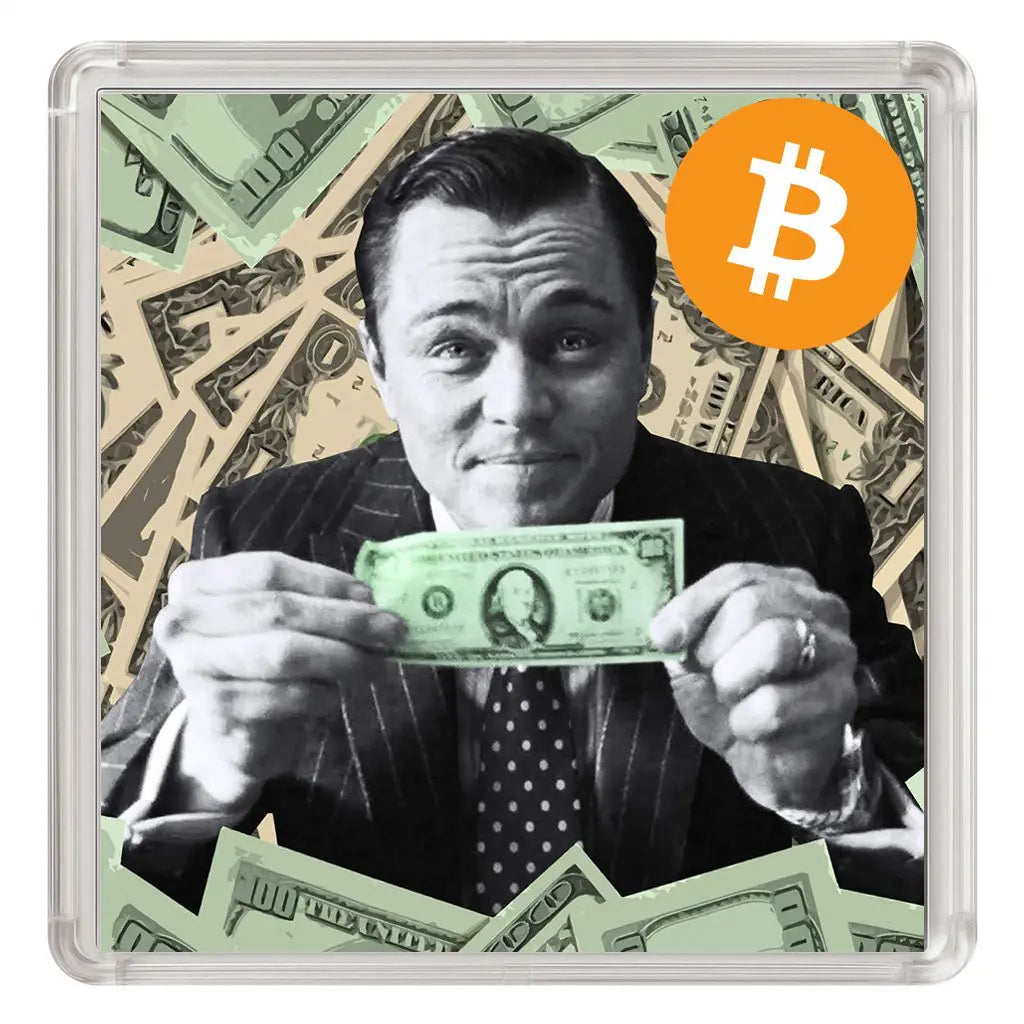
THE SOUL OF BITCOIN AT STAKE
Share
Bitcoin was never meant to be tamed. It was launched as a weapon of resistance, a virus in the global monetary system, a protocol written to survive all censorship, all manipulation, all attempts at capture. But today, the scent wafting through the markets is strange. Less chaos, fewer brutal waves, more apparent calm. And in that calm, one question burns: Is Bitcoin being absorbed by the very forces it was meant to defeat?
The facts are there. More than 7% of the total Bitcoin supply is currently held by financial products, those famous ETPs and ETFs that lock the protocol in institutional vaults. BlackRock, Fidelity, Ark Invest—all names that have nothing to do with the cypherpunk attitude—now hold a significant share of the 21 million units that will forever define the network's scarcity. This represents nearly 1.5 million BTC sucked away from individual sovereignty, placed in the custody of managers and regulators, locked away by Wall Street logic.
Meanwhile, Japanese company Metaplanet is gaining momentum. It now holds 20,000 BTC, accumulating at a pace reminiscent of MicroStrategy's strategies in the United States. The message is clear: the competition for a significant piece of the pie is underway, and companies are playing the game without hesitation. Meanwhile, individual whales are moving billions. One investor just switched $2.59 billion from Bitcoin to Ethereum, proof that the position war is not set in stone, and that strategic rotations are occurring on a scale beyond the reach of the average citizen.
Some see this development as proof that Bitcoin is becoming a “mature” asset. Spectacular shocks are becoming rarer, volatility is calming, and this relative stability is reassuring institutional funds. For Wall Street, this is a blessing. For thrill-seeking traders, it is a frustration. But for the cypherpunks who held Bitcoin up as a banner of resistance, it is a profound unease. For this apparent calm may be nothing more than anesthesia, a gradual domestication of a network designed for insubordination.
The paradox is cruel. The more Bitcoin is adopted by the giants, the more it legitimizes itself as a global store of value. But the more it locks itself away in their vaults, the more it loses its revolutionary spirit. History is full of protest movements that, as they grew, transformed into the very thing they were fighting against. Punks end up on T-shirts sold in malls. Street slogans become advertisements for multinationals. And now, the rebels' currency is becoming an asset in pension fund portfolios.
Yet make no mistake: Bitcoin hasn't changed. Its code is still incorruptible. Its 21 million limit remains etched like a law of nature. Its blocks continue to arrive every ten minutes, unfazed, whether Wall Street is interested or not. What's changing isn't Bitcoin, but us. Our relationship to the network, our way of using it, our choices of sovereignty or delegation. And this is where the real battle is being fought.
If we let ETFs concentrate 10, 15, 20% of the supply, then Bitcoin will become an institutional asset, perfectly integrated into the system it was meant to destroy. Not because it has been corrupted, but because we have stopped using it as a tool of resistance. The real war is not technical, it is cultural. It is played out in the hands of each holder. Private keys or fund shares? Autonomy or delegation? Freedom or comfort?
Institutional capture isn't inevitable. It's a collective choice. Whales can move billions, companies can accumulate thousands of BTC, but what matters is the silent mass of individuals who decide to withdraw their coins from platforms, store them in cold storage, run a node, and understand the protocol rather than just relying on a ticker. It's this mass that will decide whether Bitcoin remains a weapon or becomes a sanitized commodity.
And it must be said clearly: the battle is only just beginning. The illusion of calm is dangerous. It is not a victory, it is a lull before the storm. Wall Street is not adopting Bitcoin for love of its philosophy. It is adopting it because it smells money. Because it sees a market, a reserve, an asset capable of attracting massive flows. And if it can control it, it will. But Wall Street cannot touch the code. It cannot create the twenty-first million. It cannot censor a transaction without the support of miners and nodes around the world. As long as we remain masters of our keys, their capture will be incomplete.
So there will be two Bitcoins. The one for Wall Street, sanitized, regulated, integrated into ETFs. And the one for the diehards, sovereign, hidden in cold wallets, validated by independent nodes, and exchanged peer-to-peer without permission. These two worlds will coexist, but their balance of power will depend on us. If we give in to the easy way out, Wall Street will win. If we remain faithful to the original spirit, Bitcoin will remain indomitable.
The truth is, Bitcoin isn't boring. It's passing the ultimate test. To be adopted massively without being domesticated. To resist absorption while retaining its soul. This is the moment we're living in, and it's historic. A stress test more subtle than government bans, more dangerous than technical attacks. A capture by forgetfulness, by indifference, by laziness.
History will be written in actions. Not in BlackRock press releases, but in the hands of those who refuse to give up their keys. Not in the billions moved by whales, but in the thousands of individuals stacking satoshis week after week. Not in speeches of institutional legitimization, but in the silence of a node running in a living room, validating each block, ensuring that the network remains decentralized. Bitcoin under siege, yes. But never conquered. Because it can only be conquered if we give up. And that's up to each of us to decide.
👉 Also read:
